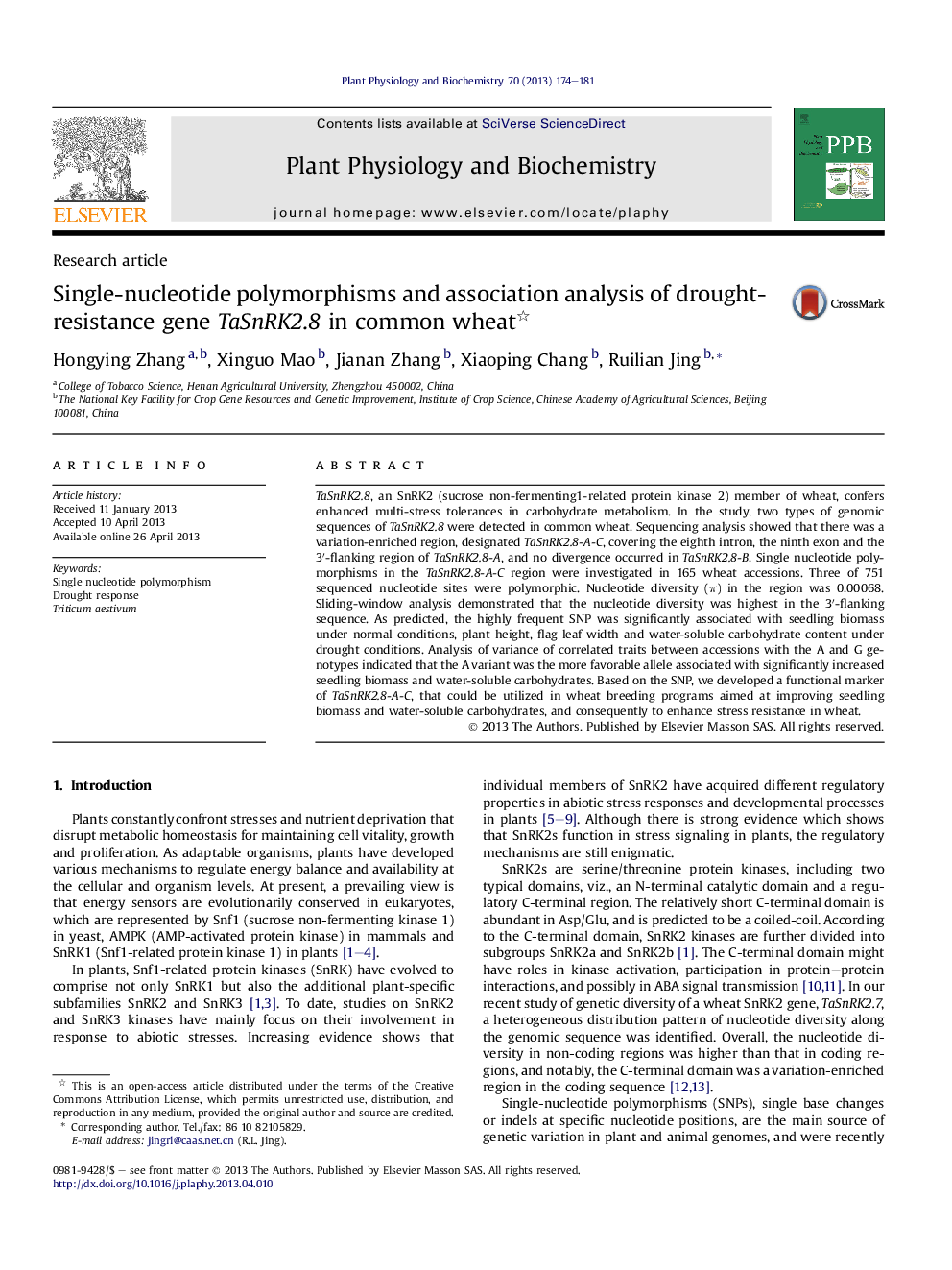| Article ID | Journal | Published Year | Pages | File Type |
|---|---|---|---|---|
| 8355545 | Plant Physiology and Biochemistry | 2013 | 8 Pages |
Abstract
TaSnRK2.8, an SnRK2 (sucrose non-fermenting1-related protein kinase 2) member of wheat, confers enhanced multi-stress tolerances in carbohydrate metabolism. In the study, two types of genomic sequences of TaSnRK2.8 were detected in common wheat. Sequencing analysis showed that there was a variation-enriched region, designated TaSnRK2.8-A-C, covering the eighth intron, the ninth exon and the 3â²-ï¬anking region of TaSnRK2.8-A, and no divergence occurred in TaSnRK2.8-B. Single nucleotide polymorphisms in the TaSnRK2.8-A-C region were investigated in 165 wheat accessions. Three of 751 sequenced nucleotide sites were polymorphic. Nucleotide diversity (Ï) in the region was 0.00068. Sliding-window analysis demonstrated that the nucleotide diversity was highest in the 3â²-ï¬anking sequence. As predicted, the highly frequent SNP was significantly associated with seedling biomass under normal conditions, plant height, flag leaf width and water-soluble carbohydrate content under drought conditions. Analysis of variance of correlated traits between accessions with the A and G genotypes indicated that the A variant was the more favorable allele associated with significantly increased seedling biomass and water-soluble carbohydrates. Based on the SNP, we developed a functional marker of TaSnRK2.8-A-C, that could be utilized in wheat breeding programs aimed at improving seedling biomass and water-soluble carbohydrates, and consequently to enhance stress resistance in wheat.
Related Topics
Life Sciences
Agricultural and Biological Sciences
Plant Science
Authors
Hongying Zhang, Xinguo Mao, Jianan Zhang, Xiaoping Chang, Ruilian Jing,
